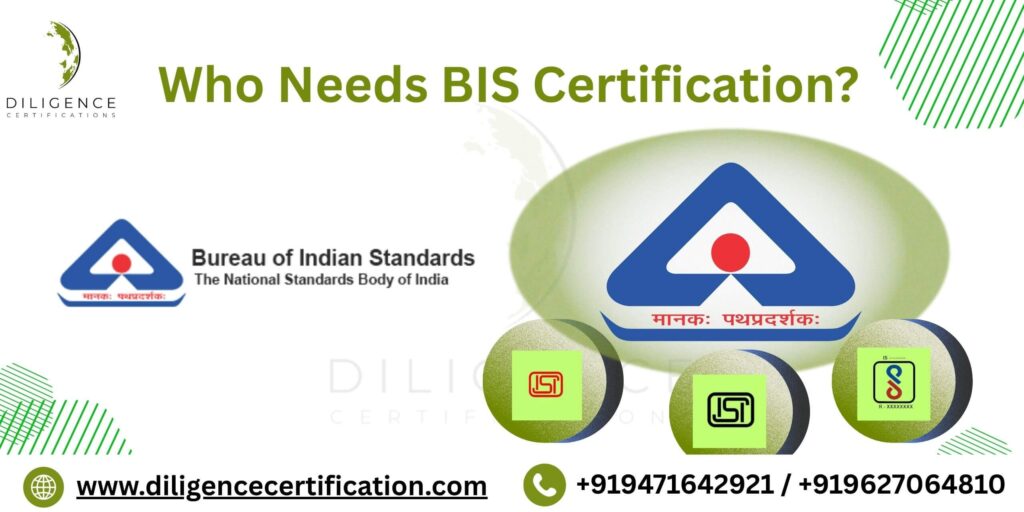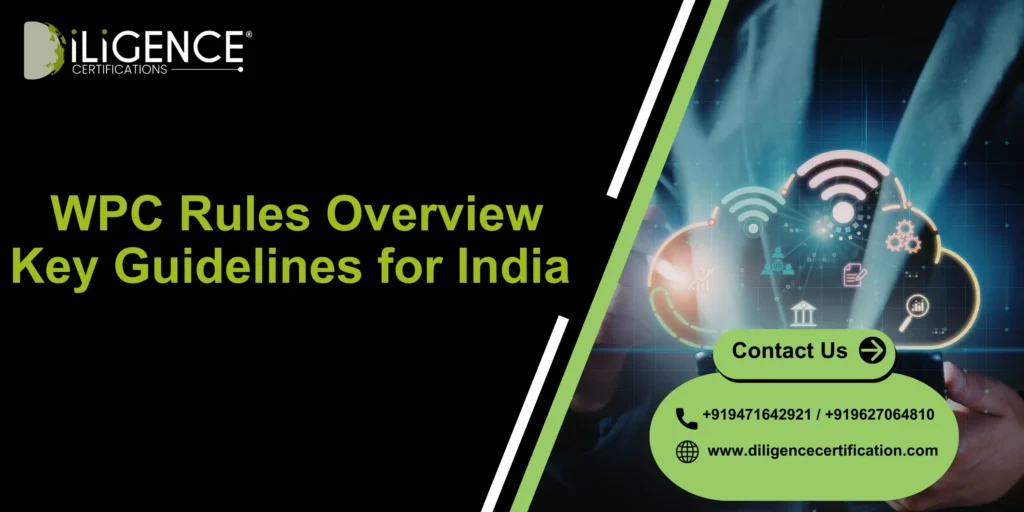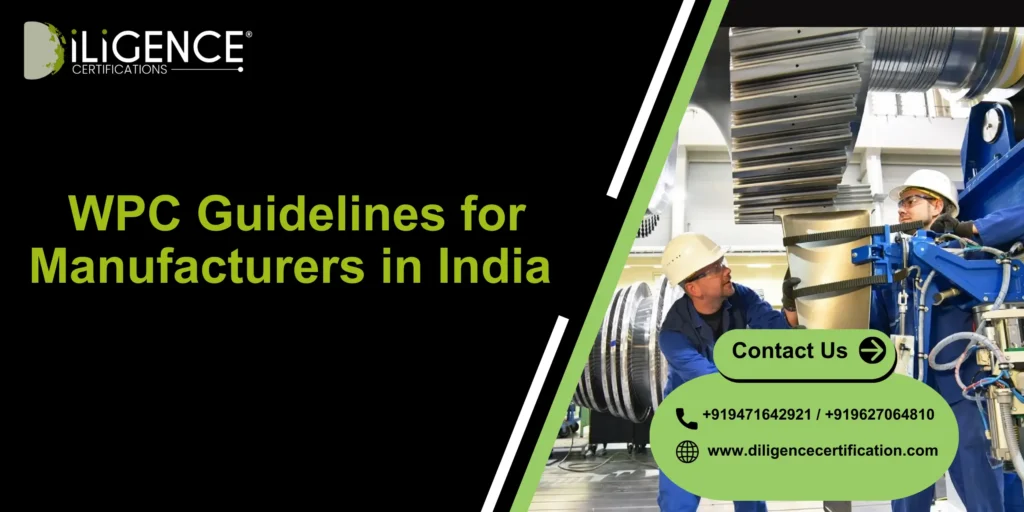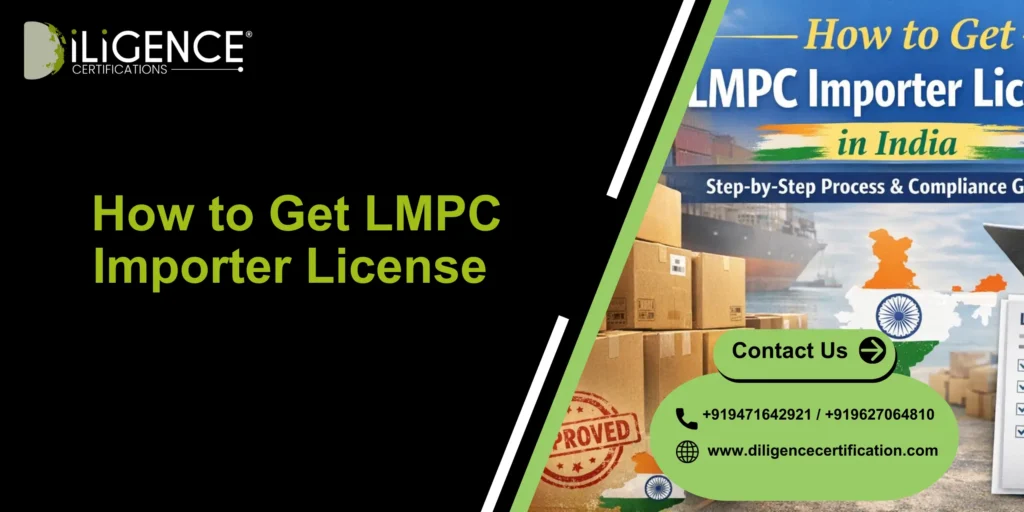- Who Needs BIS Certification: Manufacturers, importers, and service providers dealing in regulated goods.
- Involves products under ISI, FMCS, CRS, and the Compulsory Registration schemes.
- Required for import regulation and market access in India.
- Certification provides quality, safety for users and legal compliance.
- Timely renewals allow you to maintain your BIS Registration and help sustain reputational integrity.
Introduction:
In 2023, an electronics brand based in Hong Kong attempted to introduce its new line of LED smart TVs to the vast Indian market. The product met all the necessary technical requirements – CE certified, impressive specifications, secured packaging – but the shipment was stopped at the Mumbai port, due to no BIS Registration.
They thought they were clear to enter the market as everything was compliant with every country in the world. They missed the opportunity to fulfil one important requirement at the country-level – registration with the Bureau of Indian Standards (BIS). Their delay meant two months of shelf life lost, lakhs of warehousing expenses incurred and a failed festive season launch.
This is not an isolated case. Many businesses — large or small — misunderstand or overlook BIS Certification requirements. This guide is built to answer exactly who needs BIS Certification and why ignoring it could be a costly mistake.
What is BIS Certification and why is it important?
The Bureau of Indian Standards (BIS) is the national standards body of India and is a national standards organization operating under the aegis of the Ministry of Consumer Affairs. It offers standardization, product certification, and quality assurance for goods and services in Indian industry.
In the context of BIS Certification, it is a process by which a product is tested and assessed so that it is permitted to apply one of the following: the Standard Mark or the ISI Mark or under the Compulsory Registration Scheme (CRS), as applicable to the product.
The purpose? To ensure that Indian Standards consumers are only provided safe, standardized and quality-assured products. It covers a wide array of goods:
- Electrical appliances and electronics
- Cement, steel, and construction materials
- Food packaging and household goods
- Helmets, toys, and textiles
Who Needs BIS Certification in India?
1. Indian Manufacturers of Regulated Products
If you’re a domestic manufacturer producing goods that fall under the BIS Indian standards lists, you must obtain BIS certification before you can sell or distribute your products in India.
Examples include:
- Pressure cookers (IS 2347)
- LED lamps (IS 16102)
- Electrical cables (IS 694)
Without certification, your products cannot legally enter the Indian retail chain, whether offline or online.
2. Foreign Manufacturers Targeting the Indian Market
Overseas brands looking to export to India also need BIS registration. These typically fall under the CRS (Compulsory Registration Scheme) or the FMCS (Foreign Manufacturers Certification Scheme).
Real Example: A UK-based firm producing mobile chargers (IS 13252) was denied entry into Indian Standards online marketplaces due to lack of CRS registration. Only after appointing an Indian Authorized Representative (AIR) and completing BIS lab testing were they approved.
3. E-commerce Sellers and Private Label Brands
E-commerce platforms like Amazon and Flipkart now require proof of BIS certification before allowing listings in regulated categories.
If you are a private label owner or third-party reseller, you’re also responsible for BIS compliance.
4. Importers and Distributors
Importers are responsible for the goods they import into India being compliant with BIS. If you are importing toys, ceramics, kitchenware, or electronics etc. there will be customs holds, penalties, and product seizure for lack of certification.
5 OEMs and ODMs
If your brand makes products with an OEM (Original Equipment Manufacturer) or ODM (Original Design Manufacturer), BIS certification still applies. Either the OEM or the brand owner must take responsibility for obtaining certification.
Benefits of BIS Certification
- Legal Compliance: The BIS ensures your product complies with Indian laws and regulations for imports/exports.
- Market trust: It inspires consumer confidence that their products were made safely and perform as expected.
- Costs incurred by port customs: Casino customs allows quicker clearance for shipment at ports in India
- E-commerce product listing: Required certification for regulated products listed on e-commerce sites, such as Amazon, Flipkart
- Building brand credibility: Added value and legitimacy of products for the brand, whether local or global.
- Participation in Government Tenders: Gaining actual access to public procurement and supply chains.
Eligibility Criteria for BIS Certification
- Manufacturers only: BIS will grant licenses only to manufacturers, not traders or exporters.
- Product Must Fall Under a Notified BIS Standard: Refer to the latest standard list at bis.gov.in.
- Factory Must Be Operational: For ISI and FMCS, BIS inspects the production unit.
- Indian Authorized Representative (for foreign brands): Required under CRS and FMCS schemes.
- Conformance to Indian Standards (IS): The product must conform to relevant IS code for the item category.
Important Documents Required for BIS Certification
- Business Registration Certificate (for Indian applicants)
- Foreign Manufacturer Business License (for overseas brands)
- Product Technical Information and Specification
- Test Reports from BIS-recognised laboratories
- Factory Layout, Equipment List, and Manufacturing Flow Chart
- Agreement between Manufacturer and AIR (if foreign)
- Undertaking for Brand Usage (if using third-party brand name)
- Copy of Trademark Registration Certificate (if applicable)
- Digital Signature Certificate (DSC) for online application
BIS Certification Schemes and Applicable Products

ISI Mark Certification (Domestic Manufacturers)
This scheme covers products that need the ISI mark, such as cement, steel bars, switches, and LPG cylinders. It requires:
- Factory inspection
- Product sample testing
- Continued surveillance

CRS (Compulsory Registration Scheme)
Applies to electronics and IT goods. No factory audit is needed, but samples must pass testing in Indian BIS-recognised labs.
Popular items under CRS:
- Mobile phones, laptops, power banks
- Smart watches and LED TVs
- Bluetooth speakers, adapters

FMCS (Foreign Manufacturers Certification Scheme)
The Foreign Manufacturers Certification Scheme (FMCS) is designed specifically for overseas manufacturers who want to sell products in India that require ISI marking. Unlike the CRS scheme, FMCS involves a more stringent process.
Under FMCS, BIS officers conduct a physical inspection of the foreign manufacturing facility to verify quality control processes, test capabilities, and adherence to Indian Standards (IS).
BIS Registration Requirements: What You Need to Prepare
- Authorised Indian Representative (AIR) – Mandatory for foreign brands
- Product Test Reports – From BIS-approved labs only
- Factory Documents – Layout, licenses, manufacturing process
- Brand Authorisation Letter – If applying on behalf of a brand owner
- Digital Signature Certificate (DSC) – For application filing
- Compliance with IS Code – As per BIS standards
BIS Certification Process in a Step-By-Step
Step 1: Identify Appropriate BIS Standard
You should verify that your product appears on the list of products for the applicable BIS standard which is displayed on the official BIS website.
Step 2: Select Certification Scheme (ISI, CRS, FMCS)
Determine which relevant certification scheme applies to your product and whether you are a domestic business or foreign.
Step 3: Appoint Indian Representative (if applicable)
Foreign manufacturers must appoint an Indian Authorized Representative (AIR) to act on their behalf in all dealings with BIS.
Step 4: Download & Prepare Documentations & Product Samples
Gather and prepare all documentation required by the BIS and your samples for testing by a BIS recognized laboratory.
Step 5: Submit Online Application
File the application on the BIS portal along with necessary documentation and processing fee.
Step 6: Product Testing and Factory Inspection
Product samples are sent for testing. For ISI/FMCS, a BIS officer may inspect the manufacturing site.
Step 7: Grant of BIS License or Registration
Assuming all successful tests and inspections have been completed successfully, BIS will issue either a license (ISI mark) or registration number (CRS).
Step 8: Marking & Surveillance
Label your product with the appropriate BIS Standard Mark and maintain quality consistency. BIS may conduct periodic surveillance.

BIS Consultants
“More than 60% of BIS applications are delayed due to missing or incorrect documentation. Early planning saves weeks.” — Certification Lead, Diligence Certifications
“We helped a UAE-based smart device brand get BIS CRS approval in just 24 days by pre-aligning their testing specs to BIS lab formats.” — Operations Manager, Diligence Certifications
Working with experienced BIS consultants helps navigate:
- Product mapping with IS codes
- Lab coordination
- Fast-track filing
- Post-certification renewals
Conclusion:
Whether you’re an Indian MSME scaling up or a global electronics giant entering the Indian market, if your product falls under regulated categories — you need BIS certification.
It’s not just a legal checklist. BIS registration helps protect your reputation, lets your customs clear your goods efficiently, and fosters trust with your Indian buyers for generations. Work with experienced consultants like Diligence Certifications to ensure that the process is simplified and to minimize chances of costly delays.
Diligence Certifications is more than a certification facilitator — we are your strategic compliance ally. Businesses across India, Asia, the Middle East, and Europe trust us for one reason: we simplify regulatory complexity without compromising accuracy.
Frequently Asked Questions
Who needs to obtain BIS certification in India?
Once a product is covered under a mandatory BIS certification/registration product list, an Indian or overseas manufacturer must get a BIS certification/registration to sell in India.
Is BIS certification required when I am an e-commerce seller?
Yes. When e-commerce sellers are selling their products they also must confirm that the products they are selling are certified or registered to BIS Indian standards. This applies regardless of the platform you are selling on (such as Amazon or Flipkart).
Do importers require BIS?
Importers must check that the manufacturer is covered under a BIS licence. If the supplier does not have a BIS licence, the product importer is required to coordinate with the brand owner to make an application.
Do all electronics need BIS?
Only electronics that were manufactured under the compulsory registration scheme (CRS) require BIS certification.
Do toys manufacturers require BIS Certification?
Yes. All toys sold for national distribution in India must be certified by the BIS. This includes imported and hand-made goods.
Do OEMs require BIS?
Yes. Each OEM must certify each product model they manufacture under the BIS scheme.
Are spare parts covered by BIS Certification?
Generally, the BIS scheme is designed for finished products. Some components may require certification though, such as power supplies.
Is BIS required for goods only exported?
No. If goods are only sold for export and there will be no products sold in India, there is no requirement for BIS certification.
Can a BIS certification cover more than one model?
Yes, if the models are technically the same; otherwise, BIS certification is needed for each model.
What happens if I do not certify with BIS?
Selling items which are not BIS certified may result in fines, bans on imports, bans on marketplace e-commerce, and/or seizure of products.
Is BIS certification mandatory for all products?
No, only products listed under the BIS Indian standard notification require mandatory certification. These are usually electronics, construction goods, and safety-related items.
Can I sell my product online without BIS registration?
Not if it's a regulated item. Online marketplaces in India now mandate BIS registration for compliance and listing approval.
How long does BIS registration take?
CRS certification takes around 3–5 weeks. ISI and FMCS certification may take 6–14 weeks depending on factory audits and testing delays.
Who applies for BIS — manufacturer or importer?
Both can apply, depending on who holds ownership of the brand or is legally importing. Foreign brands must appoint an Indian Authorised Representative.
What happens if I skip BIS certification?
Your shipment may be held at customs, products banned from sale, or your listings removed from online platforms. Fines and legal consequences can follow.








 BIS Certification
BIS Certification
 CDSCO
CDSCO
 CPCB
CPCB
 LMPC
LMPC
 WPC Approval
WPC Approval
 Global Approvals
Global Approvals
 TEC
TEC
 ARAI
ARAI
 BEE
BEE
 ISO Certification
ISO Certification
 DGCA Certification
DGCA Certification
 NOC For Steel
NOC For Steel



















 Business Registration
Business Registration















 Legal Services
Legal Services
 Trademark Registration
Trademark Registration
 Copyright Registration
Copyright Registration
 Patent Registration
Patent Registration















































